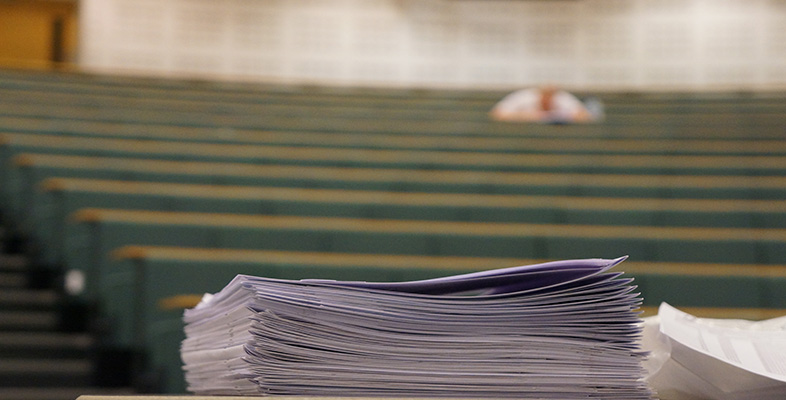3.10 Other ways to practise for the exam
Answering multiple-choice questions
Multiple-choice questions usually involve you in selecting the right answer from several possible responses. The questions are frequently short, and your answer requires no writing. However, finding the right answer may require you to do calculations on paper or, in some cases, check back through an extract of material very closely to see which is the correct of two possible answers. In the Sciences Good Study Guide there is a good example on pages 265–68, which shows the series of calculations you need to make in order to identify the correct answer. It points out the need to check through notations to ensure that you have not found the right answer by coincidence. Above all, keep going, try not to slow down and have a go at all the questions. Educated and even random guesses may add a few vital marks to your total.
One student said:
‘The problem with the multiple-choice section was that I got really stuck on one of the questions and didn’t manage to complete the section in the time available and the individual questions were not worth enough marks to justify my delay.’
Answering a question in exam conditions
Write out a few exam questions on pieces of card, shuffle them and then pick out a question at random and try to answer it in the time the exam allows. Doing this can give you a sense of the amount you can reasonably write in an exam. You should also get an idea of whether or not you are being too ambitious about what you can cover within the time constraints of an exam. You should be wary of overshooting the timeslot for an exam answer, and not leaving enough time to complete the remaining answers well. A good number of valuable marks can be lost this way. The mock exam exercise also leads some students to realise that they will have to write a little faster, and less neatly than usual. You may need to compromise presentation standards in order to do the required number of reasonably full answers.
You may find, if you use a word processor for producing your assignments, that you will have become accustomed to the luxury of the marvellous editing opportunities it provides. Adding, deleting and moving parts of the text becomes second nature, so much so that you can become quite unused to writing a reasonable first draft first time round. It would be a good idea to produce some hand-written work in the revision period to remind yourself of the different demands of handwriting to time.
Maths, sciences and technology
The additional points we would want you to be aware of as you plan your revision in these subjects relate to the different ways in which you are called upon to present your answers. These might be:
short reports
multiple-choice answers
different use of diagrams.
If you can get a copy of the Sciences Good Study Guide, Chapter 3 ‘Working with diagrams’, offers an excellent guide to the ways these methods can be used in presentation, study and revision. The most useful overall revision activity is to practise with examples, and work on previous exam questions.
Modern Languages
In modern languages courses, as you would expect, the emphasis includes listening and speaking skills as well as reading and writing skills. To learn to be creative and spontaneous in the language you are studying, you need to practise listening and speaking throughout the course and in revision. Working through the course materials, which have carefully interwoven audio materials, is one of the most useful ways of practising these skills. The following additional activities are all recommended:
- listening to foreign radio
- regular conversations with a native speaker of the language
using a self-help group, in particular to work effectively on conversation practice.
